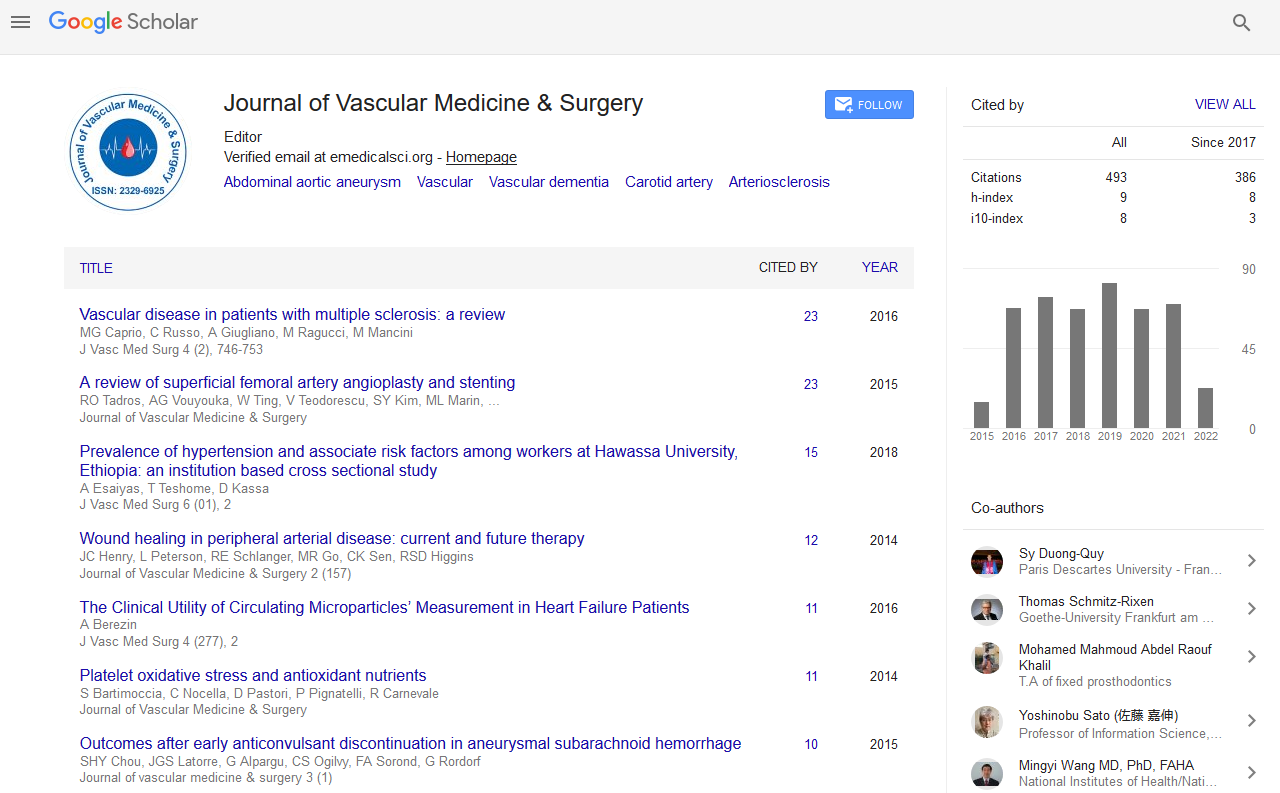Indexed In
- Open J Gate
- Academic Keys
- RefSeek
- Hamdard University
- EBSCO A-Z
- OCLC- WorldCat
- Publons
- Euro Pub
- Google Scholar
Useful Links
Share This Page
Journal Flyer

Open Access Journals
- Agri and Aquaculture
- Biochemistry
- Bioinformatics & Systems Biology
- Business & Management
- Chemistry
- Clinical Sciences
- Engineering
- Food & Nutrition
- General Science
- Genetics & Molecular Biology
- Immunology & Microbiology
- Medical Sciences
- Neuroscience & Psychology
- Nursing & Health Care
- Pharmaceutical Sciences
Abstract
Vascular Disease in Patients with Multiple Sclerosis: A Review
Caprio MG, Russo C, Giugliano A, Ragucci M and Mancini M
Background: despite major advances in immunology and molecular biology, Multiple Sclerosis is poorly understood with regards to etiology and its immune trigger and causal pathways are substantially unknown. In recent years, vascular abnormalities associated with Multiple Sclerosis have been investigated, opening the doors to the hypothesis that in the pathogenesis of multiple sclerosis a vascular component could be important. Different forms of vascular abnormalities have been associated with MS: increased risk for ischemic disease, cerebral hypoperfusion, abnormalities of endothelial cells and impaired venous drainage. The aim of this review was to describe literature evidence concerning the correlation between Multiple Sclerosis and vascular dysfunction, cardiovascular risk factors and major cardiovascular events. Methods: A literature review was performed using the following databases and web search engines: PubMed – US National Library of Medicine; Google Scholar; and Ovid MEDLINE. The search included the following combination of terms: “multiple sclerosis” and endothelial dysfunction or vascular dysregulation or vascular hypothesis or risk factors or cardiovascular disease or venous thromboembolism or epidemiology. The selected articles were divided into six macro-groups according to the topic of the paper: cardiovascular risk; cardiovascular diseases; microcirculation factors; venous alterations; infectious pathogens; and vascular adverse effects of therapy. Results: patients with Multiple Sclerosis seem to have more cardiovascular risk factors and an increased risk for ischemic stroke. Several studies have demonstrated cerebral perfusion abnormalities. The relationship between the disturbances in cerebral venous outflow and neurological disorders remains an open issue that requires further studies. Conclusion: Recent evidence suggests that vascular components may be initiating triggers for neuronal pathology and subsequent neurological manifestations of the disease. The high degree of comorbidity between vascular disease and Multiple Sclerosis suggests that vascular pathology may be an important factor causing neuronal dysfunction or degeneration in multiple sclerosis.


